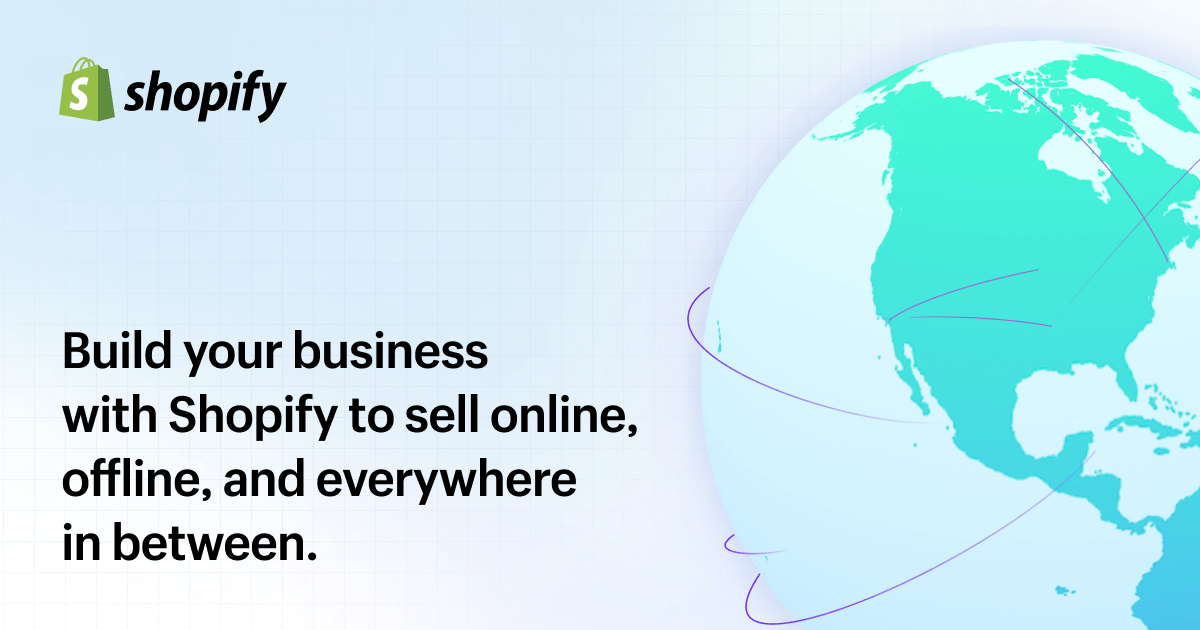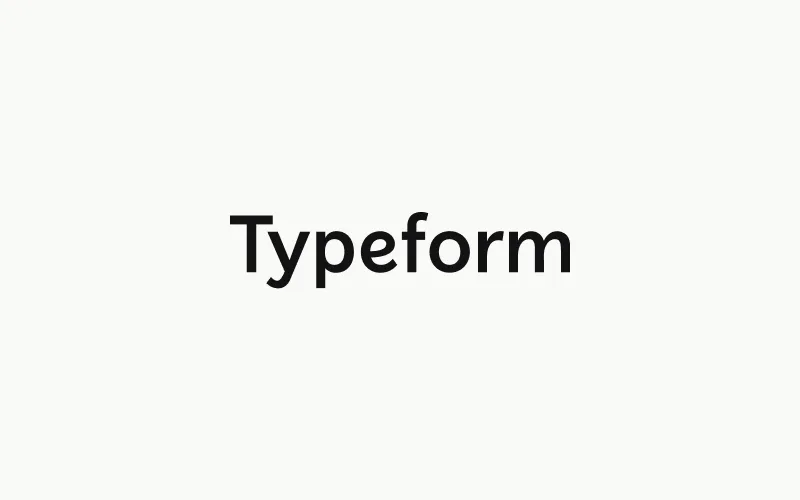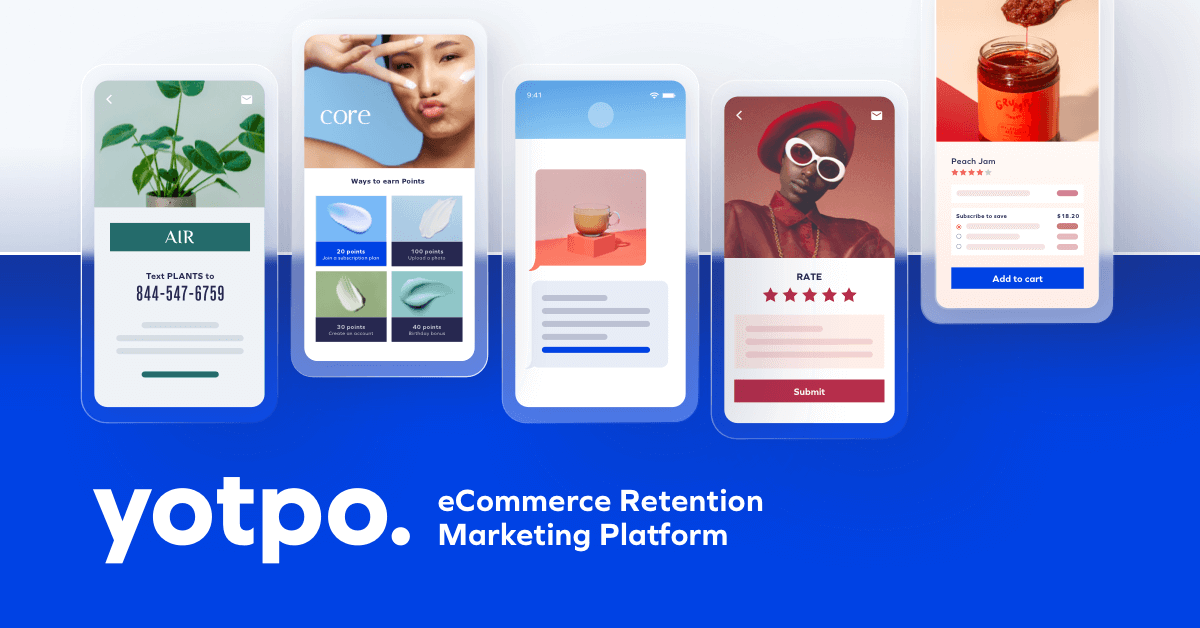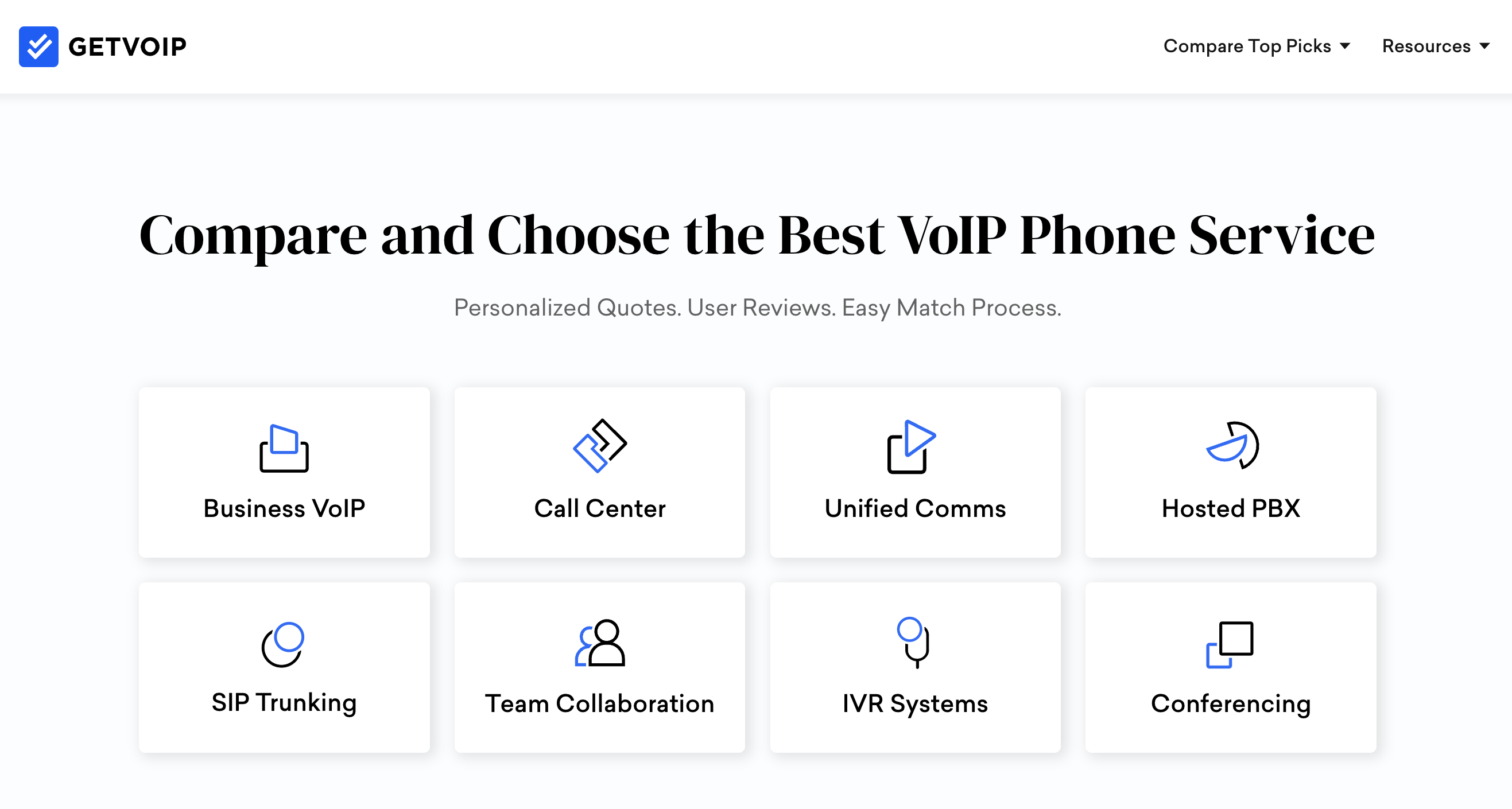Introduction
With growing competition in every industry, it is now more important than ever for businesses to listen to their customers and gather actionable feedback on how to continuously improve products and services. Product reviews provide a direct channel for customers to share what they like or don’t like, and help companies make data-driven decisions. In this blog, we evaluate the 15 most popular and effective product review software tools that can help businesses collect and leverage reviews to enhance the customer experience.
Methods of Evaluation
To evaluate and rank the top product review software, we considered various metrics like ease of use, pricing, features, integrations, customer support and reviews. Beyond conventional evaluation methods, we also factored in more ranking signals like the number of backlinks, traffic and keyword search trends for each vendor over the last year. This helped gauge their online authority and popularity objectively. The top tools were also examined based on their review collection capabilities, analytics, workflows, customization options and overall effectiveness in helping businesses take informed actions based on feedback.
1. Reevoo for WordPress
Reevoo for WordPress is a WordPress plugin that allows you to collect and display product reviews on your WordPress site. Reevoo partners with brands and retailers to collect authentic reviews from customers and make them available through their API.
Pros: Some key advantages of using Reevoo for WordPress include:
– Easy to install WordPress plugin for hassle-free setup
– Collects and verifies genuine reviews from customers who have purchased products
– Allows you to display reviews on product pages and throughout your site using customizable widgets
Cons: One potential disadvantage is that you are reliant on Reevoo’s API to retrieve and display reviews on your site. If the API is down you won’t be able to show reviews until it’s back up.
Pricing: Reevoo for WordPress has a freemium pricing model. The basic plugin is free to use but to unlock more features like custom widgets and analytics you need to purchase one of the paid plans starting at $49/month.
Some key stats about Reevoo for WordPress include:
– Over 10,000 brands and retailers partner with Reevoo worldwide
– Collects and verifies over 2 million consumer reviews each year
2. Shopify Reviews
Shopify Reviews allows merchants to collect, display and manage product reviews on their Shopify online stores. The software integrates seamlessly with Shopify and allows merchants to display reviews from sources like Trustpilot, Facebook and Google directly on their product pages.
Pros: Some key advantages of Shopify Reviews include:
– Seamless integration with Shopify stores without any coding
– Provides merchants social proof for their products from trusted reviewer profiles
– Improves conversion rates by displaying social reviews on product pages
– Allows merchants to manage, approve and filter reviews from a single dashboard
Cons: One potential disadvantage is that the app is only compatible with Shopify stores and will not work for other ecommerce platforms.
Pricing: Shopify Reviews offers two main pricing plans – a Basic plan starting at $29/month and a Premium plan starting at $49/month. Both plans allow for collecting reviews from unlimited products and profiles. The Premium plan unlocks additional review moderation tools and analytics.
Some key stats about Shopify Reviews include:
– Integrates with over 10,000 Shopify stores
– Collects reviews from popular social profiles like Facebook, Trustpilot and Google
– Allows merchants to display an average star rating on product pages based on collected reviews
3. SurveyMonkey
SurveyMonkey is an online survey tool that helps customize surveys, collect responses, and analyze results. Since 1999, SurveyMonkey has been making it easier for everyone to analyze what their audience thinks. With over 30 million active users monthly, SurveyMonkey helps identify market trends, understand customer needs, and gain useful feedback.
Pros: Key advantages of using SurveyMonkey include:
– Unlimited surveys, questions, and responses so you’re never limited in collecting feedback.
– Easy to create, distribute, and analyze surveys on any device.
– Integrates with other tools like Google Services for collaboration and data sharing.
– Intuitive dashboard and reports to analyze trends and understand audience perspectives.
Cons: A potential disadvantage is the lack of more advanced customization capabilities compared to higher-priced survey tools. The free plan has limited functionality for more complex survey needs.
Pricing: SurveyMonkey offers both free and paid plans starting at $17/month. The free plan allows basic surveys, limited data storage, and minimal capabilities. Paid plans unlock additional features, storage, and collaboration tools necessary for professional use.
Some key stats about SurveyMonkey include:
– Used by over 30 million active users monthly
– Surveys can have unlimited questions and responses
– Integrates with over 200 tools including Google Sheets and Microsoft Excel for easy data export
– Advanced analytics and visualization tools to understand survey results
4. Zendesk Reviews
Zendesk Reviews is a product review software tool from Zendesk, the leading customer service platform. Zendesk Reviews allows businesses to collect, display and analyze customer feedback across online and offline touchpoints in one centralized location.
Pros: Key advantages of Zendesk Reviews include:
– Native Zendesk integration means seamless sharing of customer data between support and reviews
– Automated workflows allow customization of when and how reviews are collected
– Custom feedback forms can be created to collect targeted feedback from customers
Cons: The main potential disadvantage is that Zendesk Reviews requires use of the full Zendesk customer service platform rather than being a standalone reviews solution.
Pricing: Zendesk Reviews pricing starts from $199 per user per month as part of Zendesk’s Support Plus plan which also includes support ticketing, live chat and more.
Some key stats about Zendesk Reviews include:
– Used by over 200,000 companies globally including Dell, Tesla and Microsoft
– Handles over 1 billion support requests annually
– Integrates natively with the Zendesk customer service platform
5. Typeform
Typeform is a survey and form building platform that aims to make data collection quick and easy without any coding required. Founded in 2012 and based in Barcelona, Spain, Typeform allows users to create stylish and interactive forms using a drag-and-drop interface.
Pros: Some of the key advantages of Typeform include:
– Beautiful and customizable form templates available
– Intuitive question logic and conditional display capabilities
– Solid integration options with CRMs, email providers, and analytics tools
Cons: A potential disadvantage is that the free plan only allows for one active form at a time which could be limiting for some use cases.
Pricing: Typeform offers three paid plans – Solo ($24/month), Professional ($48/month) and Enterprise (custom pricing). The paid plans unlock additional features like unlimited forms, custom domains, and advanced analytics.
Some key stats about Typeform include:
– Used by over 80,000 companies including Google, Uber, and Cisco
– Collects over 5 million responses per month
– Integrates with over 100+ apps including Salesforce, hubspot, and MailChimp
6. Hotjar
Hotjar is a popular website analysis tool that provides heatmaps, session recordings and form analytics. Founded in 2011, it is based in Malta and San Francisco. Hotjar helps companies better understand user behavior on their websites through its tools.
Pros: Some key advantages of Hotjar include:
– Heatmaps, video recordings and scroll depth allow for a highly visual understand of on-site user behavior
– Form analytics and conversion funnels enable optimization of conversion rates
– Survey builder for collection qualitative customer feedback on pages and areas for improvement
Cons: One potential disadvantage of Hotjar is that the free plan only allows for limited data collection and analysis. For more advanced usage, one of the paid plans would be required.
Pricing: Hotjar offers three paid plans – Startup ($49/month), Business ($99/month) and Enterprise (custom pricing). All plans include unlimited websites, users and projects. Features are expanded with more advanced analytics and reports with each higher tier plan.
Some key stats about Hotjar include:
– Used by over 2 million websites globally including Apple, Uber and Spotify
– Analyzes over 2.5 billion visitor sessions per month
– Has over 100 employees worldwide
7. Capterra
Capterra is a website that helps users find and compare business software. With over 1 million verified reviews from real users, Capterra provides insight into various software products and vendors. Some key facts about Capterra include that it has reviewed over 550 business software categories and 23,000+ software products. Capterra aims to take the guesswork out of choosing business software.
Pros: Some key advantages of using Capterra include its large database of software reviews from real users, flexible filtering and search options to find the right software, and detailed vendor and product profiles to help in the evaluation and selection process.
Cons: One potential disadvantage is that Capterra only features reviews submitted through its own site, so it may not capture the full picture of a software product. Additionally, since reviews are user-submitted, the quality and objectivity could vary between submissions.
Pricing: Capterra offers both free and paid plans for users and vendors. For users, the basic features like searching, reading reviews, and contacting vendors is free. For vendors, they offer various advertising and profile enhancement plans starting from $99/month.
Capterra claims to have reviewed over 23,000 software products across 550 categories. It contains over 1 million verified user reviews. Some other key stats include that they have reviewed over 90% of the top 250 software vendors.
8. SiteJabber
SiteJabber is an online review platform that allows customers to search for and read reviews of local businesses. Founded in 2006 and headquartered in San Francisco, SiteJabber focuses solely on publishing verified consumer reviews and ratings to help people find the best local businesses and service providers. With over 30 million reviews published to date, SiteJabber has become a leading destination for customer feedback.
Pros: Some key advantages of using SiteJabber include:
– Free platform focused solely on publishing online customer reviews
– All reviews are verified to ensure legitimacy and prevent fake reviews
– Businesses can claim and manage their profiles to respond to reviews
– Detailed reviews help customers make informed decisions on local services
Cons: One potential disadvantage is that as a free platform, SiteJabber relies on advertising for revenue. This could potentially impact the user experience with ads.
Pricing: SiteJabber’s platform and core features are completely free for both customers and businesses. The company generates revenue through advertisement placements on the site and upsells paid promotional products to businesses like premium listings and commercial bids.
Some key stats about SiteJabber include:
– Over 30 million reviews published on the platform from verified customers
– Profiles for over 100,000 businesses across various local categories like plumbers, dentists, restaurants and more
– 100+ million customers helped in finding the right local business or service
9. BrightLocal
BrightLocal is a leading local SEO and local marketing software that helps companies manage their online local listings and business reviews. Founded in 2008, BrightLocal has helped over 10,000 businesses and digital marketing agencies improve their local search rankings and visibility through effective local SEO and reputation management.
Pros: Some key advantages of BrightLocal include:
– User-friendly dashboard makes local SEO and reputation management easy
– Automated review collection from major sites like Facebook, Google and Yahoo
– Real-time analytics on local visibility, rankings, reviews and more
– Intuitive workflow and automation for listing updates across 200+ sites
Cons: The main disadvantage is the pricing – the software is subscription based so there are ongoing costs compared to one-time fees of some competitors. However, the all-in-one platform and automation features help offset the subscription costs over time.
Pricing: BrightLocal offers various pricing tiers starting from $49 per month for a basic ‘Essentials’ plan suitable for small businesses up to an ‘Enterprise’ package customized for large brands and agencies. Discounts are available for annual commitments and for managing multiple locations/domains.
Some key stats about BrightLocal include:
– Over 10,000 customers including major brands like AT&T, Comcast and Vodafone
– Supported listings on over 200 directories including Google, Bing, Facebook, YellowPages
– Processes over 1 million citations and updates monthly
– Has collected over 5 million customer reviews
10. BirdEye
Birdeye is a leading online reputation management and customer experience platform for multi-location businesses. Founded in 2007, Birdeye helps businesses collect reviews from major sites like Google, Facebook and Yelp, engage with customers via two-way messaging, and manage their online listings across various directories and maps. With over 250,000 businesses using its software, Birdeye aims to help local businesses better understand and interact with their customers.
Pros: Some of the main advantages of using Birdeye include:
– Local listings management across various directories and maps in one place
– Automatic collection of reviews from major review sites
– Detailed business profiles with key info and customer reviews
– Two-way messaging capabilities to efficiently answer questions and manage leads
– Actionable customer and website analytics for insights
Cons: One potential disadvantage is that the paid plans may not be suitable for very small businesses or solopreneurs on a budget. The basic free plan also has certain limitations.
Pricing: Birdeye offers different pricing plans starting from a free Basic plan to Premium and Enterprise level plans suited for larger businesses.
The paid Pro plan starts at $49/month and unlocks more advanced features. There are also 1-year and 2-year Pro subscription discounts available.
Some key stats about Birdeye include:
– Over 250,000 businesses use Birdeye globally
– Available in over 10 countries
– Integrates with over 200 different partner sites and maps for local listings management
– Collects reviews from major sites like Google, Facebook, Yelp, TripAdvisor etc.
– Helps businesses get an average of 30% more online reviews
11. Bazaarvoice
Bazaarvoice is a leading provider of product reviews and user-generated content solutions. Founded in 2005, Bazaarvoice helps thousands of brands and retailers capture, manage and showcase unstructured consumer feedback and ratings on their websites. With offices worldwide, Bazaarvoice aims to provide shoppers with authentic experiences powered by real consumer opinions.
Pros: Some key advantages of using Bazaarvoice include:
– Powerful content management platform to manage all UGC at scale
– Detailed product ratings from real customers that help shoppers make more informed purchase decisions
– Customizable review forms and templates to fit your brand’s look and needs
Cons: One potential disadvantage is the upfront and ongoing subscription costs of using Bazaarvoice’s full platform. It may not be suitable for smaller brands or businesses on a budget.
Pricing: Bazaarvoice offers a variety of subscription plans depending on business needs and budgets. Plans generally start at a few thousand dollars per month for basic review collection capabilities up to tens of thousands per month for premium features and global support.
Some key stats about Bazaarvoice include:
– Processes over 1 billion shopper interactions per year
– Supports more than 5,500 brand and retail clients globally
– Operates networks that reach over 600 million unique shoppers per month
12. Yotpo
Yotpo is a leading eCommerce retention marketing platform that helps brands drive repeat purchases through powerful solutions for reviews, loyalty programs, SMS marketing, and more. Founded in 2011 and headquartered in New York City, Yotpo integrates seamlessly with major shopping cart platforms like Shopify, Magento, and BigCommerce to capture, display, and leverage user-generated content across online stores.
Pros: Some key advantages of Yotpo include:
– Social proof marketing features that display reviews and ratings prominently on product pages to boost conversions.
– Automatic collection of user-generated content like reviews, photos, and Q&A directly on the product page with no manual work required.
– Stylish and customizable review widgets that can be placed throughout the website for maximum exposure.
Cons: One potential disadvantage is that the full capabilities of Yotpo require an enterprise-level paid subscription, so it may not be suitable for brands with smaller budgets or traffic.
Pricing: Yotpo offers several pricing tiers including Lite, Pro, and Enterprise plans starting at $99/month. Pricing is based on monthly order volume and features include review collection, displays, loyalty programs, SMS marketing, and more.
Some key stats about Yotpo include:
– Used by over 7,000 brands worldwide including Happy Socks, Fossil, and KENU.
– Processes over 1 billion customer interactions each month.
– Has helped customers generate over $4 billion in repeat sales to date.
13. GetVoip
GetVoip is a cloud communication solutions provider that offers cloud PBX systems, VoIP phone service, and integrated call monitoring and analytics tools. Founded in 2005 and based in San Francisco, GetVoip aims to provide businesses of all sizes with flexible and cost-effective communication solutions in the cloud.
Pros: Some of the key advantages of GetVoip include:
– Full featured cloud PBX system with voice, video, and messaging capabilities.
– Integrated call recording, monitoring and AI-powered transcription tools for compliance and customer insights.
– Real-time dashboards and over 50 customizable reporting metrics for call analytics.
– Flexible pricing plans with toll-free minutes included and elastic scaling as business needs change.
– Multi-device support allowing users to make and receive calls from their desktop, mobile or softphone.
Cons: One potential disadvantage is that the call recording feature requires an additional monthly subscription for use beyond the basic free trial period.
Pricing: Pricing for GetVoip starts at $19.99 per user per month and includes unlimited calling to over 60 countries. Additional feature subscriptions are available on monthly or annual plans for call recording, call monitoring, and advanced analytics tools.
Some key stats about GetVoip include:
– Over 15,000 businesses currently use GetVoip’s cloud phone system globally.
– The company has over 60,000 registered users on its website accessing its tool comparisons, guides, and reviews.
– GetVoip offers toll-free calling plans to countries around the world including the US, Canada, UK, Germany, France and Australia.
– Integrated features include call recording, call monitoring, AI-powered call transcription, and real-time dashboards with over 50 customizable reporting metrics.
14. ReviewTrackers
ReviewTrackers is an online reputation management software that helps businesses discover actionable insights about their customers. Founded in 2017 and headquartered in Vancouver, Canada, ReviewTrackers helps over 5,000 businesses in 80 countries manage their online reviews and customer feedback across 40+ review sites and social networks like Facebook, Google and Trustpilot.
Pros: Some key advantages of ReviewTrackers include: – Custom review forms to collect additional customer feedback at any touchpoint – Automated data import that pulls in reviews from dozens of sites continuously – Real-time dashboards to monitor review volume, sentiment and demographics on a single dashboard
Cons: As with any online reputation management software, ReviewTrackers has a learning curve for businesses new to collecting and managing customer feedback at scale. Some training may be required to get the most value from the advanced features.
Pricing: ReviewTrackers offers four pricing tiers to suit different business needs starting from $49/month for basic monitoring up to $199/month for advanced outreach and marketing modules. All plans are covered by a 30-day money back guarantee.
Some key stats about ReviewTrackers include: – Over 5,000 customers worldwide across a wide range of industries – Integrations with over 40 review sites and social networks including Google, Facebook, Trustpilot and more – Processes over 30 million reviews and customer conversations annually
15. Reputation.com
Reputation.com is one of the leading online reputation management software platforms. In business since 2006, Reputation.com helps businesses build and monitor their digital presence across various online channels like Google, Facebook, and other local business directories. The platform aims to identify and surface positive reviews and feedback to improve a company’s online reputation.
Pros: Some key advantages of using Reputation.com include:
– Leader in the ORM space with a comprehensive platform and feature set
– Combines online reviews aggregation with social media and local listings profile monitoring
– Advanced machine learning algorithms to surface positive feedback and reviews
– Dedicated customer success team to ensure campaigns are optimized
Cons: One potential disadvantage is the pricing, as it is aimed at larger enterprise businesses. The monthly subscription rates start from hundreds of dollars per month based on the selected package and plan.
Pricing: Reputation.com offers customized pricing plans starting at $399/month based on the package and features selected. Key factors that determine the pricing include number of locations, amount of monitored profiles and channels, team size, and additional premium features.
Some key stats about Reputation.com include:
– Over 15 years in business providing ORM services
– Serve over 25,000 customers globally across various industries
– Manage billions of customer interactions and conversations online annually
– Rank #1 organically on Google for competitive keyword phrases
Conclusion
While every business has unique needs, the tools highlighted in this blog consistently emerged as leaders in the product review software category based on holistic evaluation criteria. They offer robust yet user-friendly features to capture genuine customer feedback seamlessly. Leveraging one of these platforms can be highly impactful in understanding user sentiments, measuring satisfaction and delight, as well as enhancing products and services based on real customer voices. This ultimately helps boost loyalty, advocacy and long-term growth for businesses.
















